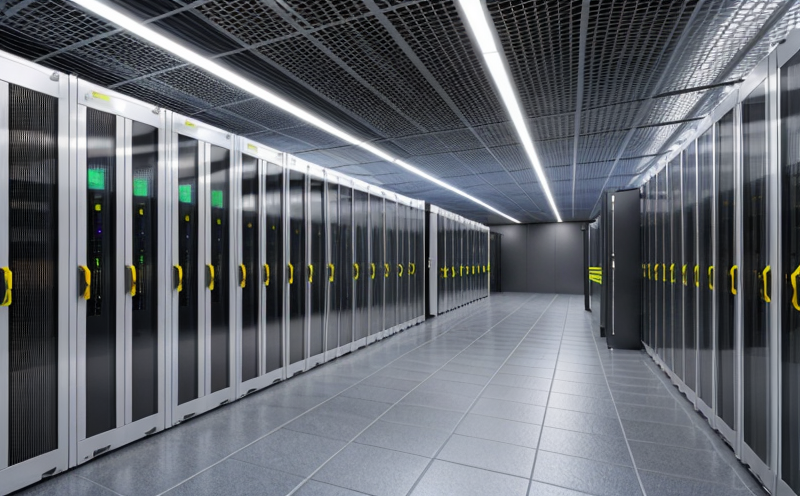Data Center Management and Automation: A Comprehensive Guide
The modern data center is a complex system that requires precise management and automation to ensure optimal performance, efficiency, and reliability. As businesses continue to rely on digital technologies to drive innovation and growth, the demand for robust data center infrastructure has never been higher. In this article, we will explore the world of data center management and automation, highlighting key concepts, best practices, and emerging trends in the industry.
Data Center Management: A Brief Overview
Data center management refers to the process of monitoring, controlling, and optimizing data center operations to ensure maximum uptime, efficiency, and security. Effective data center management involves a combination of physical and virtual components, including servers, storage systems, networks, power distribution units (PDUs), cooling systems, and other infrastructure elements.
A well-managed data center can improve:
Availability: By minimizing downtime and maximizing system reliability
Efficiency: By optimizing resource utilization and reducing energy consumption
Security: By implementing robust access controls, monitoring systems, and incident response procedures
Data Center Automation: Key Benefits and Use Cases
Automation plays a critical role in modern data center management, enabling organizations to streamline operations, improve efficiency, and reduce costs. Some key benefits of data center automation include:
Faster deployment and provisioning: Automated workflows can significantly speed up the process of deploying new servers, applications, and services
Improved resource utilization: Automation can help optimize resource allocation, ensuring that each system is running at optimal capacity
Enhanced security: Automated security protocols can detect and respond to potential threats in real-time
Key Features and Capabilities of Data Center Management Software
Data center management software provides a centralized platform for monitoring, controlling, and optimizing data center operations. Key features and capabilities include:
Real-time monitoring and alerting: Providing detailed insights into system performance, capacity utilization, and security events
Automated workflows and tasks: Streamlining routine maintenance, upgrades, and troubleshooting activities
Capacity planning and forecasting: Enabling organizations to anticipate future resource needs and make informed investment decisions
Key Features of Data Center Automation Tools
Data center automation tools provide a range of capabilities for automating data center operations. Key features include:
Scripting and orchestration: Allowing IT teams to automate repetitive tasks using custom scripts or built-in workflows
API integration: Enabling seamless interaction with third-party systems, services, and applications
Event-driven automation: Triggering automated actions in response to specific events, such as system failures or security breaches
Key Considerations for Implementing Data Center Management and Automation
When implementing data center management and automation solutions, organizations should consider the following key factors:
Scalability: Ensuring that the solution can adapt to changing business needs and scale with growth
Flexibility: Providing a modular architecture that supports multiple vendor platforms and technologies
Integration: Seamlessly integrating with existing infrastructure, systems, and applications
Best Practices for Data Center Management and Automation
To ensure maximum effectiveness from data center management and automation solutions, organizations should follow these best practices:
1.
Develop a comprehensive strategy: Aligning business goals with technology requirements and resource allocation
2.
Choose the right tools and technologies: Selecting solutions that meet specific needs and integrate with existing infrastructure
3.
Implement robust security measures: Protecting against unauthorized access, data breaches, and other potential threats
Emerging Trends in Data Center Management and Automation
As the industry continues to evolve, several emerging trends are shaping the future of data center management and automation:
Artificial intelligence (AI) and machine learning (ML): Enhancing predictive analytics, anomaly detection, and automated decision-making
Containerization and orchestration: Simplifying application deployment, scaling, and management using containerized workloads
Cloud-first strategies: Migrating applications and services to cloud-based infrastructure for greater flexibility and scalability
Common Challenges in Data Center Management and Automation
While data center management and automation offer numerous benefits, several common challenges can arise during implementation:
1.
Inadequate planning and resource allocation
2.
Insufficient training and support for IT staff
3.
Integration issues with existing systems and applications
4.
Security concerns related to automated workflows and scripts
Q\A Section
Here are some additional questions and answers to provide further insights into data center management and automation:
Q: What is the primary goal of data center management?
A: The primary goal of data center management is to ensure maximum uptime, efficiency, and security by monitoring, controlling, and optimizing data center operations.
Q: What are some key benefits of data center automation?
A: Key benefits include faster deployment and provisioning, improved resource utilization, enhanced security, and reduced costs.
Q: How can data center management software help improve resource allocation?
A: Data center management software can provide detailed insights into system performance, capacity utilization, and security events, enabling organizations to optimize resource allocation.
Q: What is the difference between data center automation tools and data center management software?
A: Data center automation tools focus on automating specific tasks and workflows, while data center management software provides a centralized platform for monitoring, controlling, and optimizing data center operations.
Q: How can AI and ML enhance predictive analytics in data center management?
A: AI and ML algorithms can analyze large datasets to identify patterns, predict anomalies, and anticipate future system performance issues.
Q: What are some common challenges associated with implementing data center automation solutions?
A: Common challenges include inadequate planning and resource allocation, insufficient training and support for IT staff, integration issues with existing systems and applications, and security concerns related to automated workflows and scripts.

































